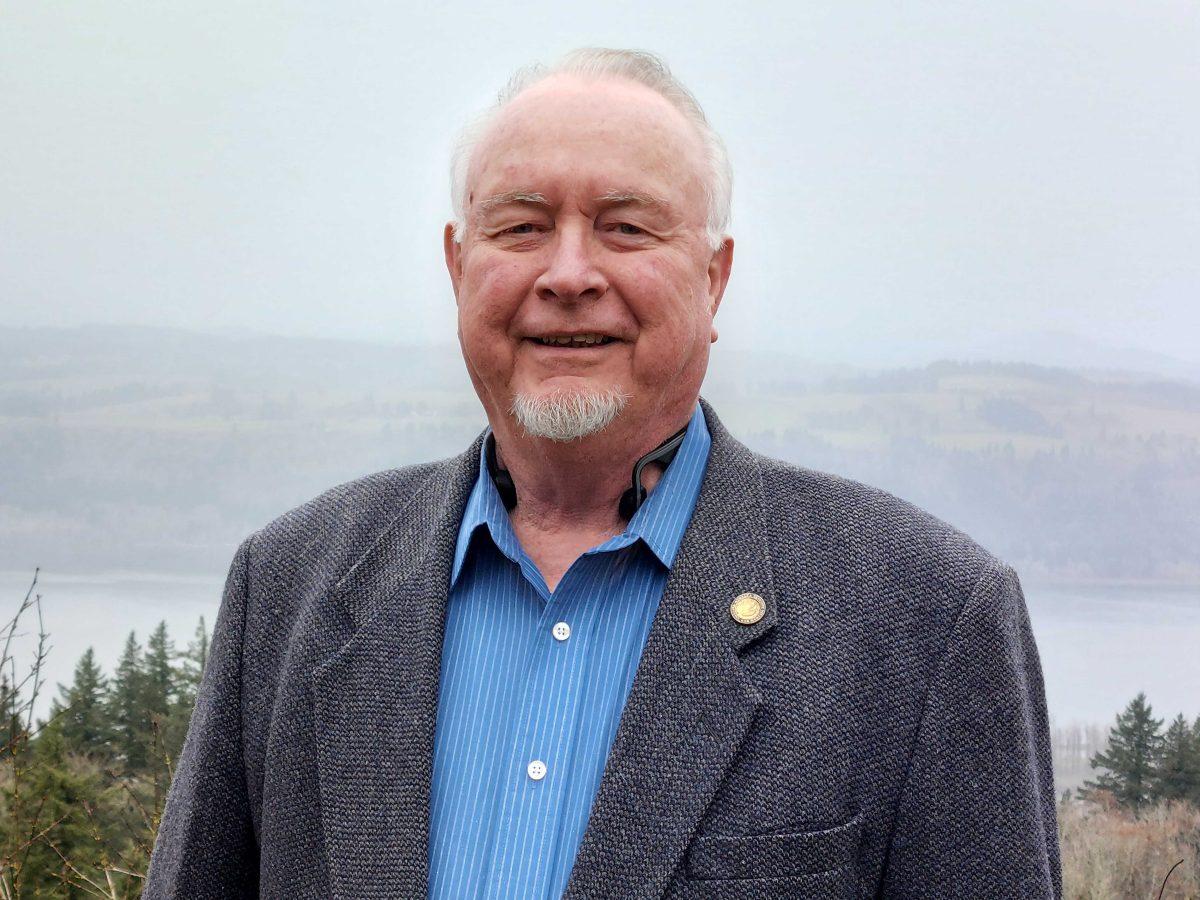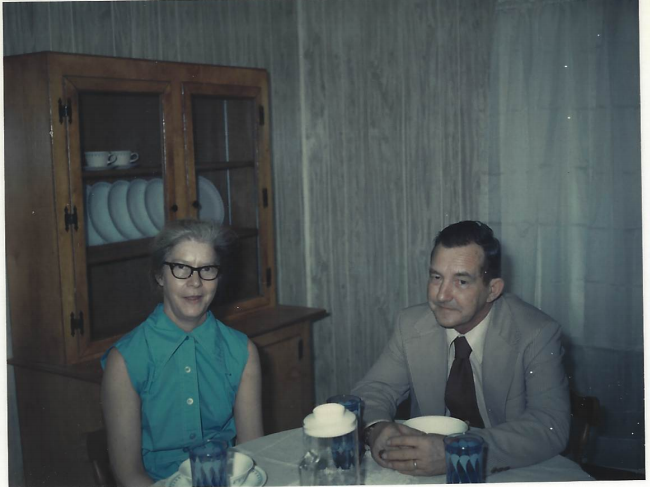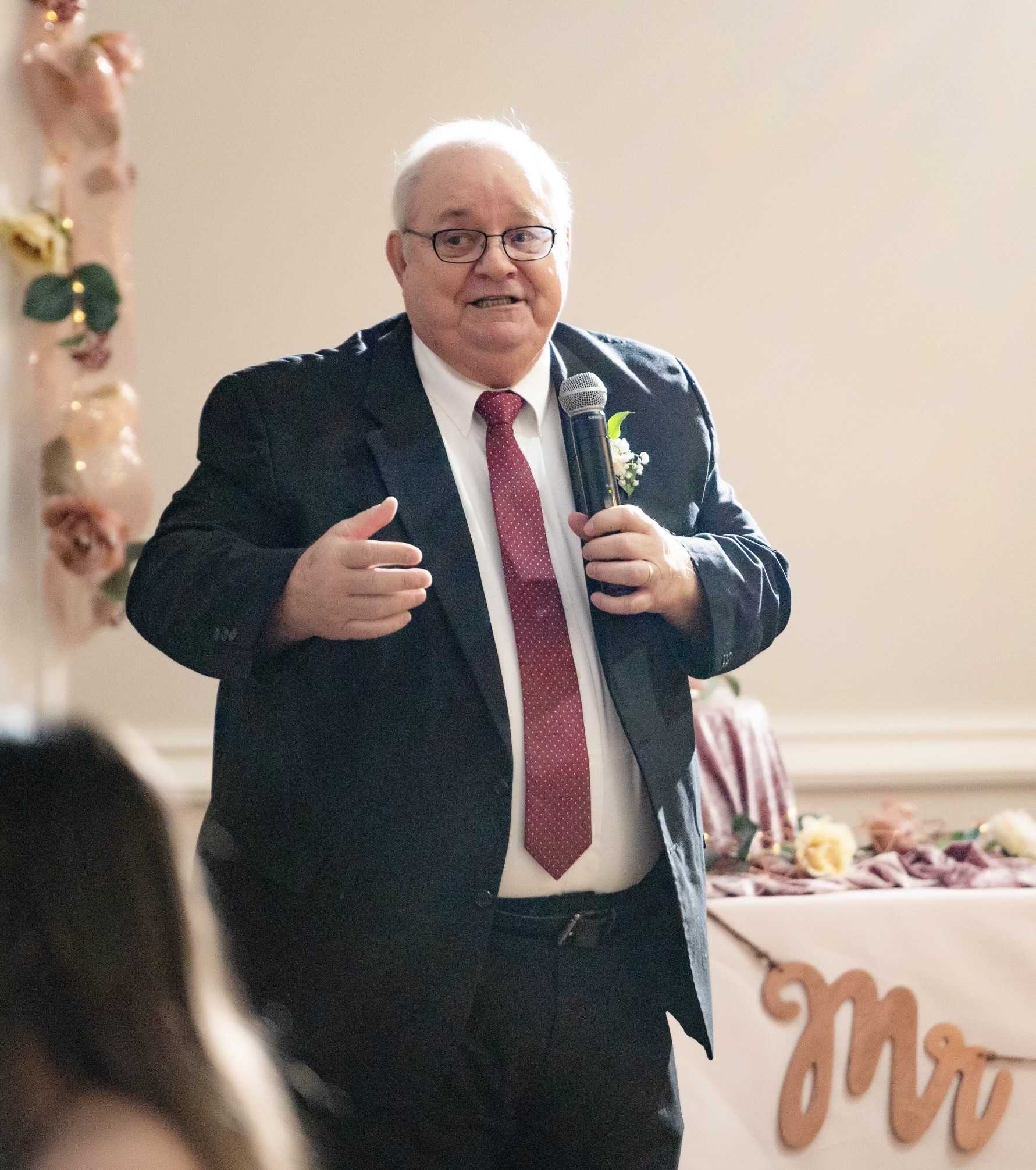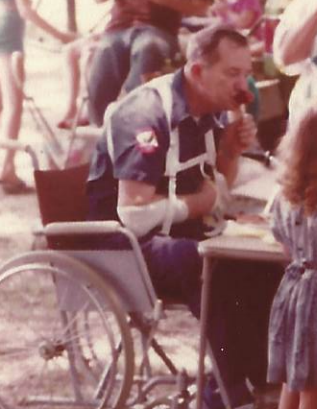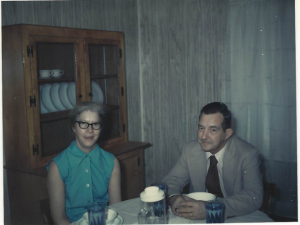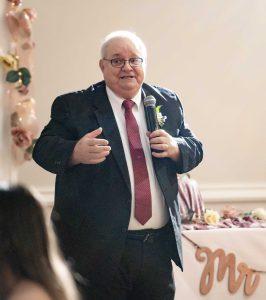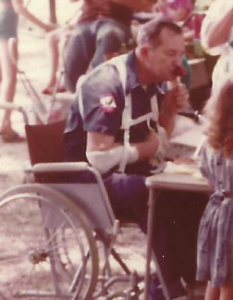This is the third in a three-part series.
Leland and Sonny Boyd say some relatives and old friends wonder why they are speaking publicly about their father’s involvement in the Ku Klux Klan in 1960s Louisiana.
But to them, talking about growing up in an abusive and violently segregated atmosphere is necessary in today’s social landscape.
“If you don’t study your history, if you don’t learn your history, then you’re doomed to relive it,” Sonny, 74, said. “There are now two generations of people who didn’t have to live through that. And so, they don’t really have an understanding of it, and how some people hold the old views the way they do and how some people came out of it seemingly unscathed. We didn’t come out unscathed. We bear the scars of what happened.”
Leland, 70, said their father, Earcel Boyd, “was a pretty good man to start off with. But something changed over the years.”
“I don’t have to be what my daddy was,” Leland said. “We chose not to choose that path. And that’s an option. It’s a choice you make. Every person has to make that choice. We, as individuals, have to make that choice.”
The brothers recall how their father lived a contradictory life. He was friends with Black people around Ferriday, Louisiana, where the family lived in the 1960s, and once taught his children to teach everyone with respect, no matter their skin color. An ordained Baptist minister, Earcel preached in Black churches, too.
But he also a joined the Ku Klux Klan in 1962 and later became a member of a secretive and violent Klan offshoot called the Silver Dollar Group.
Earcel was never charged with a crime, and many of the racially motivated bombings and murders in and around Ferriday remain unsolved. But FBI files indicate that members of the Silver Dollar Group were the main suspects.
His sons, however, grew angrier about their father’s involvement in the Klan as the racial violence escalated.
Making that choice to not follow in their father’s footsteps was not so simple at first, as there were practical limits to the brothers’ rebelliousness.
As an adolescent, Sonny would drive his father to Klan rallies. But his refusal to sit in on the rallies — and some of his other activities there — got him into trouble with Earcel’s fellow Klansmen.
Sonny typically sat in the parking lot, making him a target of FBI agents who would try to probe him for information. At one large rally outside Ruston, Louisiana, Sonny sat on a fence post of the gate leading into the rally, watching FBI agents trying to take pictures of Klan flyers sitting on the back seat of his father’s car.
Sonny opened the car and handed the agents the flyers.
“That kind of pissed off the guys from Mississippi, the Klansmen from Mississippi,” Sonny said. “And I think I’d have been beat up that night had it not been for RJ Glover, because that was one of the two incidences where he saved my butt.”
Raleigh J. “Red” Glover was the head of the Silver Dollar Group and a friend of Earcel. Glover was the lead suspect in many of the bombings, and the FBI tagged him a psychopath.
Some of those FBI agents contacted Earcel and Sonny on several occasions. They even asked Sonny to attend rallies and report back to them.
“‘You’re crazy,’” Sonny told the agents. “Because if you want to get someone killed down here, that’s what you need to do, is associate them as being an informant for the FBI.”
Amid growing Klan violence across the South, the FBI had established offices near hotbeds of Klan activity in Mississippi and Louisiana. Agents faced resistance in solving racial murders, as local police and sheriff’s departments were often unwilling to cooperate. Some of those law-enforcement officials were in the Klan and would tell Klan leaders what the FBI shared with them.
When FBI agents would speak to Earcel at the family’s home in Ferriday, Sonny said half of what his father said was “what they wanted to hear” and the other half was lies. Earcel once grew angry at a line of questioning and shoved an agent through the family’s screen door and off the porch.
As they matured, the brothers coped with the abuse and violence around them in different ways.
Although both stayed active in church later in life, Leland and Sonny related to religion differently during those dark times in the 1960s. Leland says his relationship with God is the only thing that got him through the abuse and violence around him. Sonny strayed away from the Church.
“When I was going through what I was going through at the time, God wasn’t in it,” Sonny said. “In 1968, 1969 I turned my back on the church. I walked away from it. I was fed up with what I was seeing, hearing and everything. I saw the Bible used to teach integration. I saw the Bible used to teach segregation.”
The brothers say their mother, Marjorie, seemed sympathetic to the Civil Rights movement and the fight for equal rights. But like many Klan wives, she mostly stayed in the background and did not challenge Earcel.
“She only stepped in when things got kind of sideways,” Sonny said. “You didn’t hear much about her because it was like sometimes it was like she wasn’t there.”
The murder of Wharlest Jackson, an NAACP leader who worked with Earcel and Red Glover at a tire plant in Mississippi, was a pivotal moment for Sonny Boyd and his relationship with his father.
Sonny said that whatever respect and trust he had left for Earcel was destroyed after the Black Korean War veteran’s death in a car bombing in 1967.
Sonny said his father knew something was about to happen but did nothing to stop it.
“I was ready to go. I was ready to fight,” Sonny said. “I didn’t know who I was going to fight, what I was going to fight, but I was ready to fight. And I was either in tears half the time or looking for a wall to punch.”
As the brothers grew older, their independence from their father’s belief system became more apparent. They followed in Earcel’s footsteps by serving in the Navy, but what had been a traumatic, life-altering experience for their father was a liberating one for the brothers, especially Sonny.
Sonny served for nine years and was stationed at various military bases throughout the world, often in integrated communities. For part of that time, Sonny was an equal employment opportunity facilitator, helping to ensure that soldiers were paid and treated equally.
He said he visited home about once a year.
“‘Daddy, we’ve had our differences over the years,’” Sonny recalls telling his father during one visit. “‘But I still love you.’”
“We never did really reconcile those differences,” he said.
Sonny, who now lives in Oregon, married his second wife in 1987. He has two daughters, two foster sons and a foster daughter.
Sonny also gave guest lectures and speeches about racial issues at local schools and a community college on the West Coast.
“One of one of them I called ‘Patriotism to Terrorism,’” Sonny said. “And it was about how after each of the wars — after the Civil War, after World War I — that the numbers of the Klans grew pretty considerably.”
Leland, too, joined the Navy when he was 18, in 1969. He served for a short time before moving to Natchitoches, Louisiana to study math and accounting at Northwestern State University.
Unable to afford college expenses, Leland dropped out and managed a local store for some time. He held a variety of jobs throughout his life, including being a youth pastor.
Leland married his wife in 1970. They have three girls and nine grandchildren.
Leland recalled a time when Earcel visited him and his wife at their home in Natchitoches. The “n-word” was a regular part of Earcel’s vocabulary, but Leland did not tolerate that kind of language in his home. He told his father that was not allowed.
“‘I’m your dad,’” Earcel responded.
“‘I don’t care who you are,'” Leland told him. “That’s not allowed in this house.”
Leland and Sonny say Klan activity began dying down around the time Sonny left for the Navy in 1967, especially as local schools integrated. Leland said life went on more normally from that point forward; the bombings had largely stopped, and Earcel continued worked at Armstrong Tire and Rubber until he became ill many years later.
“After the place was integrated, it had been done,” Sonny said. “There was nothing else for [the Klan] to fight. They lost.”
Earcel fought lung cancer for four years before he had a stroke in 1987 that partially paralyzed his left leg and arm. Leland was with his father shortly before he died the following year.
Earcel was like “a skeleton,” Leland said, and he struggled to speak, taking a gasp between each word.
“You’re torturing yourself,” Leland told his father. “You need to give up and go.”
Earcel told Leland he was scared. Leland said that if he believed half of the things he preached as a minister, he should not be worried. Leland prayed a sinner’s prayer with his father shortly before he passed.
Sonny did not get the same kind of closure. He spoke to his father in 1987 and tried visiting again with his wife a year later, but it was too late.
“I was never able to reconcile some of the things that I had with him,” Sonny said.
Making some very subtle distinctions, Sonny added, “I never really understood if he was a true bigot, or a separatist or a segregationist. Was he a true white supremacist? To be honest with you, I never really understood that. I don’t understand it to this day.”
Sons of KKK member reflect on relationship with their late father: ‘We never did really reconcile those differences’
By Josh Archote
March 22, 2022
Sonny Boyd said he and his brother Leland are talking about their father’s involvement with the Klan to help keep history from repeating itself.



